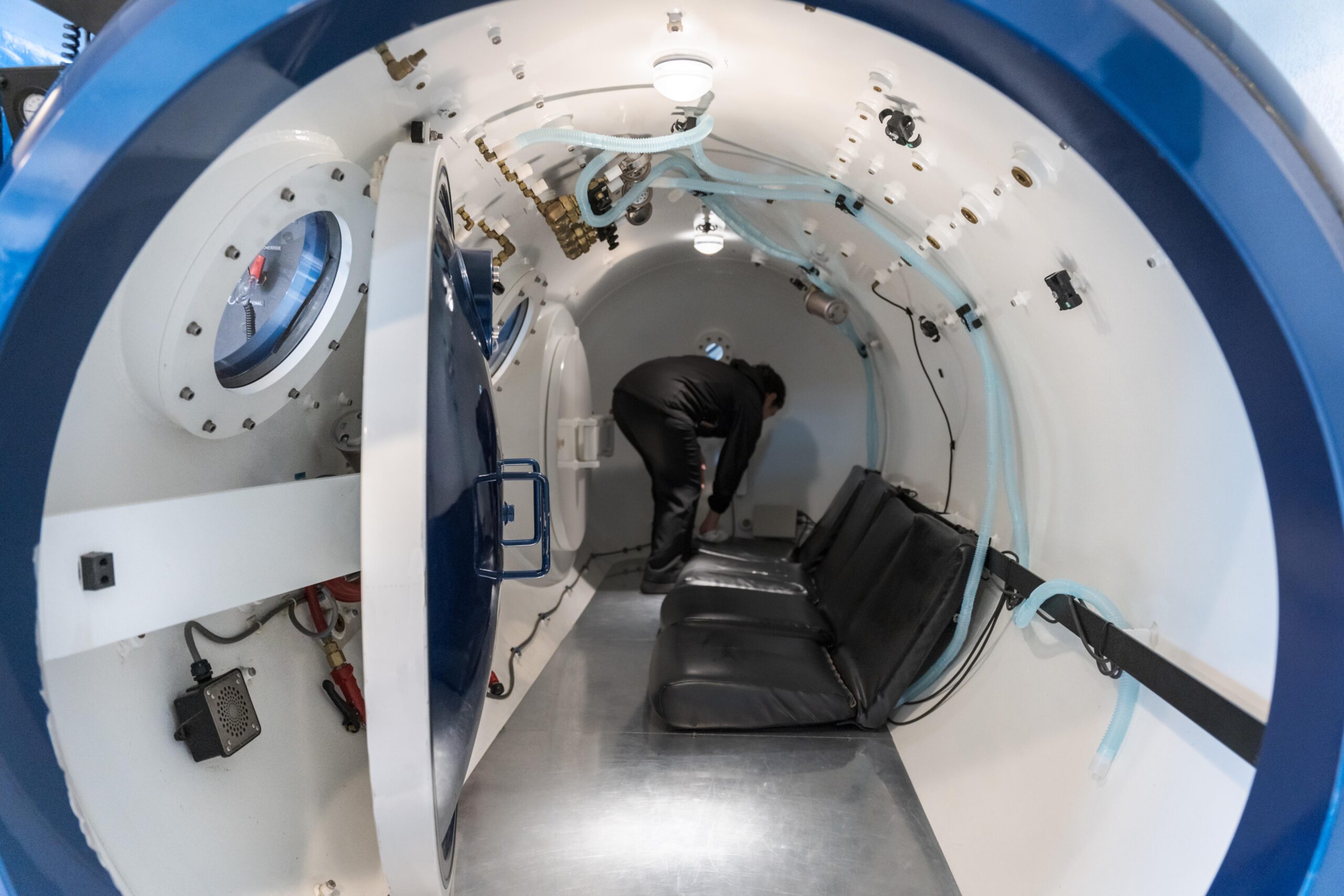Hyperbaric Welder Life Expectancy: Diving Deep Into The Risks And Rewards
Hyperbaric welding is one of the most challenging and rewarding professions out there. It’s not just about welding; it’s about survival, precision, and skill under extreme conditions. If you’ve ever wondered what it takes to be a hyperbaric welder and how long they can expect to live, you’re in the right place. This article will take you through the ins and outs of this unique career, from the risks to the rewards and everything in between.
When we talk about hyperbaric welding, we’re talking about a job that combines engineering expertise with underwater bravery. These welders work in some of the harshest environments imaginable, often hundreds of feet below the surface. Their job isn’t just dangerous—it’s life-changing. The life expectancy of a hyperbaric welder depends on a lot of factors, including safety measures, health, and even luck. But don’t worry; we’ll break it all down for you.
Before we dive deep into the numbers and risks, let’s set the stage. Hyperbaric welders are the unsung heroes of the offshore oil and gas industry. They repair pipelines, fix underwater structures, and ensure that our energy needs are met. But at what cost? Let’s explore the life expectancy of these modern-day adventurers and what you need to know if you’re considering this career path.
- Dr Phil Wife Age A Deep Dive Into The Life Of Robin Mcgraw The Remarkable Woman Behind The Iconic Tv Show
- Hello Kitty Backstory The Untold Story Behind The Iconic Character
Understanding Hyperbaric Welding: A Quick Overview
Hyperbaric welding, also known as underwater welding, is the process of joining metal parts together while submerged in water. This isn’t your average welding job. Welders use specialized equipment and techniques to work in pressurized environments, often in complete darkness. It’s a job that requires more than just technical skills; it demands mental toughness and physical endurance.
Here’s the kicker: hyperbaric welding isn’t for everyone. The risks are high, and the rewards can be just as high. Welders often earn six-figure salaries, but they pay for it with long hours, grueling conditions, and the constant threat of danger. Let’s take a closer look at what makes this job so unique.
What Makes Hyperbaric Welding Dangerous?
Hyperbaric welding is dangerous for a number of reasons. First, there’s the obvious risk of drowning. Welders work in deep water, often miles from the nearest shore. If something goes wrong, getting help quickly can be nearly impossible. Then there’s the risk of explosions. Welding underwater generates sparks, which can ignite gases trapped in the water. It’s like working in a pressure cooker with no escape route.
- Tatum Oneal Partner A Deep Dive Into Her Relationships Life And More
- Elvis Grandkids The Untold Story Of The Kings Legacy
But the dangers don’t stop there. Hyperbaric welders also face the risk of decompression sickness, also known as “the bends.” This happens when divers ascend too quickly from deep water, causing nitrogen bubbles to form in their bloodstream. It can be deadly if not treated immediately. And let’s not forget about marine life. Sharks, jellyfish, and other creatures can make life even more challenging for these brave professionals.
Hyperbaric Welder Life Expectancy: The Stats
Now, let’s talk about the big question: how long do hyperbaric welders live? The answer isn’t simple. Life expectancy varies depending on a number of factors, including experience, safety protocols, and individual health. On average, hyperbaric welders have a shorter life expectancy than the general population. Studies suggest that the mortality rate for hyperbaric welders is significantly higher than for other professions.
According to the Occupational Safety and Health Administration (OSHA), hyperbaric welders face a fatality rate of about 15 per 100,000 workers. That’s more than five times the national average. But it’s not all doom and gloom. Many welders live long and fulfilling lives, especially if they take the necessary precautions.
Factors Affecting Life Expectancy
Several factors affect the life expectancy of hyperbaric welders:
- Experience: Experienced welders tend to have better survival rates than beginners. They know the ropes and can avoid common pitfalls.
- Safety Protocols: Companies that prioritize safety tend to have lower accident rates. Welders who follow safety guidelines are less likely to encounter life-threatening situations.
- Health: Physical fitness and good health are crucial for hyperbaric welders. Those with pre-existing medical conditions may face greater risks.
- Equipment: Using top-of-the-line equipment can make a big difference. Outdated or poorly maintained gear can increase the risk of accidents.
The Day-to-Day Life of a Hyperbaric Welder
So, what’s a typical day like for a hyperbaric welder? It’s not as glamorous as you might think. Most welders work long hours, often in shifts that last 12 hours or more. They spend their days repairing pipelines, inspecting structures, and performing maintenance tasks. It’s a physically demanding job that requires a lot of focus and concentration.
Here’s a breakdown of a typical day:
- Pre-dive preparation: Welders spend hours preparing for each dive, checking equipment and reviewing safety protocols.
- Diving: Once they’re ready, welders descend into the depths, often working in complete darkness.
- Post-dive recovery: After the dive, welders need time to decompress and recover. This process can take several hours.
Challenges Faced by Hyperbaric Welders
Hyperbaric welders face a host of challenges on a daily basis. From dealing with extreme pressure to managing equipment malfunctions, their job is anything but easy. Here are some of the biggest challenges they face:
- Extreme Pressure: Working at depth means dealing with intense pressure, which can affect the body in a number of ways.
- Equipment Malfunctions: Welders rely heavily on their equipment, so any malfunction can be catastrophic.
- Isolation: Being underwater for long periods can be isolating, both physically and mentally.
How to Become a Hyperbaric Welder
If you’re thinking about becoming a hyperbaric welder, you’ll need more than just a love for adventure. It takes years of training and experience to master this craft. Here’s what you need to do:
- Get Certified: Start by getting certified in commercial diving and welding. There are several schools and programs that offer these certifications.
- Gain Experience: Work in related fields, such as offshore oil and gas, to gain experience and build your skills.
- Stay Safe: Always follow safety protocols and never cut corners. Your life depends on it.
Training Programs for Hyperbaric Welders
There are several training programs available for aspiring hyperbaric welders. These programs cover everything from basic welding techniques to advanced diving skills. Some of the top programs include:
- International Association of Diving Contractors (IADC): Offers comprehensive training for commercial divers.
- Offshore Energy Training Center: Provides specialized training for offshore workers, including hyperbaric welders.
Risks vs. Rewards: Is It Worth It?
Hyperbaric welding is a high-risk, high-reward profession. On one hand, you could earn a six-figure salary and travel the world. On the other hand, you could face life-threatening situations on a daily basis. So, is it worth it? That depends on your risk tolerance and career goals.
For many, the rewards outweigh the risks. Hyperbaric welders get to work in some of the most beautiful and challenging environments on the planet. They also enjoy job security and high salaries. But it’s important to weigh the pros and cons before making a decision.
Pros and Cons of Being a Hyperbaric Welder
Here’s a quick breakdown of the pros and cons:
- Pros: High salary, job security, travel opportunities, and a sense of adventure.
- Cons: High risk of injury or death, long hours, and physically demanding work.
Tips for Staying Safe as a Hyperbaric Welder
Safety should always be your top priority as a hyperbaric welder. Here are some tips to help you stay safe:
- Follow Safety Protocols: Never cut corners when it comes to safety. Follow all guidelines and procedures to the letter.
- Stay Fit: Physical fitness is crucial for hyperbaric welders. Make sure you’re in top shape before heading out on a job.
- Use Quality Equipment: Invest in high-quality equipment and maintain it regularly. Faulty gear can be deadly.
Common Safety Hazards and How to Avoid Them
Here are some common safety hazards and how to avoid them:
- Drowning: Always dive with a buddy and carry emergency equipment.
- Explosions: Be cautious when welding near flammable gases. Use proper ventilation and equipment.
- Decompression Sickness: Ascend slowly and follow decompression guidelines.
Conclusion: Is Hyperbaric Welding Right for You?
Hyperbaric welding is a challenging and rewarding career that’s not for everyone. While the risks are high, so are the rewards. If you’re willing to put in the work and take the necessary precautions, this could be the adventure of a lifetime.
So, what’s the verdict? Hyperbaric welders have a shorter life expectancy than the general population, but that doesn’t mean they can’t live long and fulfilling lives. With the right training, equipment, and mindset, you can thrive in this demanding profession.
What are your thoughts on hyperbaric welding? Do you think it’s worth the risk? Let us know in the comments below, and don’t forget to share this article with your friends and family. Who knows? You might inspire the next generation of hyperbaric welders!
Table of Contents
- Understanding Hyperbaric Welding: A Quick Overview
- What Makes Hyperbaric Welding Dangerous?
- Hyperbaric Welder Life Expectancy: The Stats
- Factors Affecting Life Expectancy
- The Day-to-Day Life of a Hyperbaric Welder
- Challenges Faced by Hyperbaric Welders
- How to Become a Hyperbaric Welder
- Training Programs for Hyperbaric Welders
- Risks vs. Rewards: Is It Worth It?
- Tips for Staying Safe as a Hyperbaric Welder
- J D Vance Mother The Untold Story You Need To Understand
- Tiana Brown The Rising Star Of Contemporary Dance

HBOT Life Hyperbarics

Hyperbaric Oxygen Therapy Thrive Hyperbarics

Beachside Hyperbaric